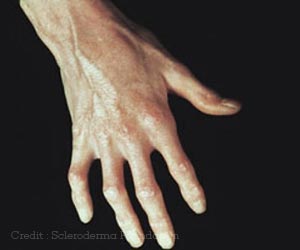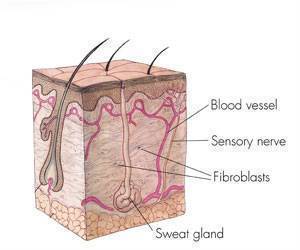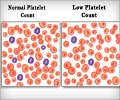New treatment potentially the first to improve survival in patients with severe scleroderma in more than four decades.

‘After 6 year follow-up, 86% of those who received the stem-cell transplant remained alive, compared with only 51% of those who received infusions of cyclophosphamide.’





In a multisite clinical trial, the approach proved more successful than the existing treatment, significantly improving survival and reported quality of life. "This is a major advance in the treatment of severe scleroderma," said Karen Ballen, MD, a co-investigator on the study and the director of stem cell transplantation at the University of Virginia Cancer Center. Scleroderma Study
The study compared the most effective existing treatment, the drug cyclophosphamide, with the new approach. Thirty-four trial participants received cyclophosphamide, while 33 received the stem cell transplant treatment. After 72 months, 86 percent of those who received the stem-cell transplant remained alive, compared with only 51 percent of those who received infusions of cyclophosphamide.
In the New England Journal of Medicine paper detailing their findings, the researchers conclude: "At four and a half years of follow up, participants who received a transplant experienced significantly better outcomes overall than those who received cyclophosphamide. In addition, 44 percent of participants who received cyclophosphamide had begun taking anti-rheumatic drugs for progression of their scleroderma, compared to only 9 percent of those who received a transplant."
Both treatment options carried risks of infections and low blood-cell counts, the researchers reported. The overall infection rates were similar.
Advertisement
Advertisement















